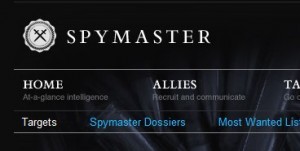The failure of social media games
Any game that involves two or more people could be called a social game, in that it requires players to interact with each other. However, not all games are truly social – having social, team-based game-play, rather than solitary, individual game-play. One would think that any game based on a social media platform would inherently have social game-play; yet this is precisely where social media games have failed.
The basic model of social media games has, at its core, the goal of self-propagation. This is usually accomplished in two specific ways. First, by creating an award system for having more members of a player’s social network playing the game. Second, by informing the player’s social network of what they are accomplishing in the game.
Most Facebook games, for example, involve the giving and receiving of “widgets.” The goal of the game is to collect as many different widgets as possible from as many friends as possible. Each time you give or receive a widget the game publishes this feat on the walls of the players involved. These types of games illustrate the two above points perfectly. In order to prevail at the game you must have a network of friends that play. Every time you play – give or receive widgets – you announce to your friends that you are playing the widget game.

One may argue that this theoretical game is social – it involves interactions between people. If we remove the game from the social media platform, however, we’re left with nothing more than a mass of lunatics standing on soapboxes handing out pamphlets while yelling, “I just handed you a pamphlet!” There is absolutely nothing social about this – I would say this is quintessential antisocial behavior.
Even the more involved games have failed to be truly social. Take for instance the game FarmVille. Based on the social media network Facebook, the game has users managing virtual farms. The basic object of the game is to plow, plant, and harvest crops and take care of farm animals. Doing so earns in-game money that can be used to buy farm items (including more seed for planting).

In order to unlock features you must add neighbors – people from your network who are also playing. You are encouraged to send farm gifts to your network as a way to invite people to play. Your accomplishments are also posted in your news feed for others to see.
The game goes a little bit further in its attempts to be social. You can visit your neighbor’s farms to help them and to leave messages. The act of helping a neighbor is as simple as clicking a button. Once clicked, you’ve helped. However, you never interact with, or even see, the other player, and the bulk of the game-play is the managing of your own farm – a very solitary task.
Spymaster is a popular spy game based on the social media network Twitter, and has expanded to Facebook. Your strength as a spy is directly related to the number of Twitter followers or Facebook friends you have (spies) and how many others in your networks are playing the game (spymasters). You’re also rewarded for sending tweets or status updates about your game activities. But the game-play itself is completely individual.

The Spymaster community has gone outside the game to establish social elements. For example, “killing” another player is more easily accomplished if you have a team with which to coordinate attacks. Players created teams, called “cells,” for this purpose. Sites where players could meet to be social and join cells were created long before Spymaster introduced any cell features into the game.
Yet, as much as the community desires true, communal game-play, Spymaster is devoid of just that. Nothing in the game itself encourages team-play. Killing is still a singular activity. While it is easier to accomplish a kill with a team, it isn’t required or even encouraged. Only the person who strikes the final blow gets credit for the kill. There is no bonus for working as a team or joining a cell. You can’t see what your teammates are doing or have done, or who they are attacking. And while Spymaster has recently released a built-in chat for cells, many cells prefer to use established communication resources outside the game.
Social play is a long established norm within gaming and is inherent in entire game genres like role playing games, team-based first person shooters, or the relatively new generation of social multiplayer console games like Rock Band or “family entertainment” games.
That social media game developers have not yet created a game that encourages or requires social play is truly disappointing. Why not allow friends to work together in FarmVille on a single farm? Or in Spymaster, allow team members to select a single target, attack in one strike, and share the credit and spoils of a kill? Either of these changes would create a true element of social game-play in their respective games.
It is disappointing that game developers working on social media platforms continue to fail to introduce games that encourage real social game-play – a feature that many would truly enjoy, and should be inherent in social media games.


